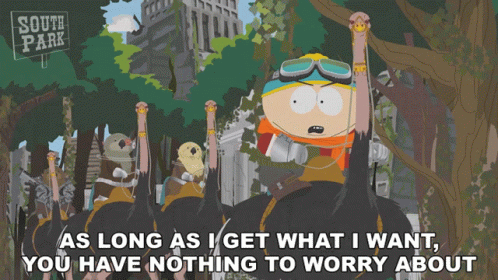it seems like no matter what the subject, people can never form a unified consensus on anything. all religions split into faiths and sub-branches and it seems like everything else too, even in the world of bitcoin, we have shitcoins and b cash and satoshi's vision. who the fuck things SOV is a good idea - i don't know, but they're out there!
reminds me of the South Park episodes where the atheists are at war with each other over the most logical name for their movement (The United Atheist Alliance, The Unified Atheist League or The Allied Atheist Allegiance
